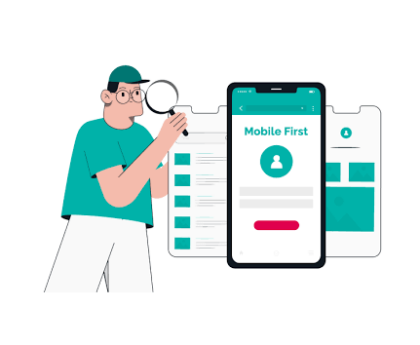
Why Brands Must Prioritise Ethical Data Collection & Transparency
Boost user trust & transparency with ethical data collection. Build your brand with privacy ethics & data transparency.
Table of Contents
- Why Ethical Data Collection Matters
- The Digital Shift: How Ethical Data Collection Build Modern Marketing
- Ethical Data Collection in Action: Strategies That Build Trust
- Transparency is Key: The Link Between Trust & Data Sharing
- 2025 Trends & Best Practices In Ethical Data Collection
- Final Thoughts: Power Your Brand with Trust & Transparency
Why Ethical Data Collection Matters

In a world where personal data is more valuable than oil, the way we collect, use, and protect data defines our brand’s credibility.
More users today are concerned about privacy ethics and data transparency than ever before. If you’re not transparent about how you’re collecting data — you’re losing trust. And in digital marketing, trust is currency.
This is where ethical data collection becomes your game-changer — not just a compliance requirement, but a powerful tool for building trust through transparent data practices.
The Digital Shift: How Ethical Data Collection Built Modern Marketing
The landscape of data collection has changed drastically in the last decade. With major tech regulations like GDPR and CCPA, brands are now under a microscope. But legal compliance isn’t enough. Customers expect brands to go beyond — they want transparency, consent, and respect.
And here’s the catch — if you earn their trust, users want to share their data with you. But only when it’s collected ethically and transparently.
Ethical Data Collection In Action: Strategies That Build Trust
1. Consent is the New Click
Before using any data, obtain explicit user consent. Use clear, jargon-free opt-in forms that outline how data will be used. A pop-up that says “We value your privacy and collect your data only with your permission” goes a long way.
This is where privacy ethics truly starts — respecting the user’s choice.
2. Transparency in Practice
Being open about how and why you collect data builds immediate credibility. Publish a simple, scannable privacy policy. Include infographics or quick video explainers if needed. This embodies data transparency in action.
3. Use Data for User Benefit
Only collect what you need and show users how it benefits them. Are you using browsing data to personalise content? Tell them that. Highlight how their experience gets better.
This approach supports how to collect user data ethically and boosts engagement rates significantly.
2025 Trends & Best Practices In Ethical Data Collection
With evolving AI tools and tracking technologies, these practices help you stay ahead while staying ethical:
1. Zero-Party Data Is Gold
Ask users directly for data through quizzes, polls, or custom content preferences. It’s more accurate and 100% consent-based.
2. Don’t Over-Collect
Too much data = risk. Stick to minimal, relevant information and discard unused data. This is key in best practices for ethical data collection.
3. Data Security = Trust
It’s not enough to collect data ethically — protect it. Use encryption, anonymisation, and regular audits.
4. Transparency at Every Touchpoint
From landing pages to email opt-ins, highlight your data collection practices. Include a “Why we ask this” note next to every form field.
By integrating these, you’re not just being compliant — you’re actively building trust through transparent data practices.
Transparency Is Key: The Link Between Trust & Data Sharing
It’s simple: the more transparent you are, the more willing users are to share data. A transparent brand fosters a trusted relationship, turning passive users into active brand advocates.
This link is at the core of why transparency matters in data privacy. Whether you’re running Facebook ads or email campaigns, knowing you collected your audience’s data the right way makes every touchpoint more effective.
Shifting to ethical data collection leads to stronger engagement, lower bounce rates, and higher retention.
Final Thoughts: Power Your Brand With Trust & Transparency
In an era of hyper-personalisation, your data collection strategy can either build trust — or break it. By prioritising ethical data collection, you’re sending a clear message: “We respect your privacy, and we’re here for the long run.”
Building trust through transparent data practices is more than a best practice — it’s your secret growth weapon.
Ready to upgrade your brand’s trust quotient? Start with ethical data collection.





